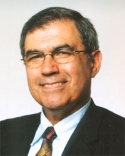A video replay of the webinar “Cannabis 203: Investing in Cannabis” is available to view.
Paul Josephson Named to Insider 100: Policymakers by Insider NJ

Duane Morris partner Paul Josephson was named to the 2019 “Insider 100: Policymakers” list by Insider NJ, which described him as “an expert on transportation and casino issues – and cannabis.” Mr. Josephson was also named to the 2017 and 2018 lists.
“The list assembles names listed … because of the rigorous quality of their public policy minds,” according to the publication.
To read the 2019 “Insider 100: Policymakers” publication, please visit the Insider NJ website.
New Illinois Cannabis Law Sets Licensing, Regulation Trends
 On June 25, Illinois Gov. J.B. Pritzker (D) signed into law the Cannabis Regulation and Tax Act, making Illinois the 11th state in the country to legalize cannabis and the first to have a legislature approve commercial sales without a voter referendum.
On June 25, Illinois Gov. J.B. Pritzker (D) signed into law the Cannabis Regulation and Tax Act, making Illinois the 11th state in the country to legalize cannabis and the first to have a legislature approve commercial sales without a voter referendum.
Legalizing marijuana in Illinois is expected to generate revenue to help restore poverty-and crime-ridden communities and fund substance abuse, mental health, and law enforcement services. Adult-use cannabis sales could net Illinois about $500 million in tax revenue annually, according to some experts. The act takes effect Jan. 1, 2020.
The Illinois law will end cannabis prohibition and replace it with a comprehensive and highly regulated system to tax and regulate cannabis for adults 21 and over.
To view the full text of this article written by Duane Morris attorney Neville Bilimoria, please visit the Duane Morris website.
Effort to Legalize Adult Use of Marijuana Fails in New York State
By Jerome T. Levy and Lauren G. Perry


On June 17, 2019, the New York Legislative session adjourned without passing a bill that would have legalized adult use cannabis in the state. The sponsor of the leading bill in the assembly and Manhattan Democratic Senator, Liz Krueger, announced that there was not sufficient time to gain the support necessary for passage of a bill. Although there appears to be broad popular support for legalization of marijuana in New York, a number of “safety” issues arose, particularly among suburban constituencies relating to concerns such as operation of motor vehicles under the influence of marijuana. Sentiment in suburban areas caused lawmakers from those districts to withhold the support needed, particularly in the state senate. In addition, many blamed the failure on Governor’s Cuomo’s reluctance to give the measure full support. Although the governor had endorsed adult use legalization earlier in the session, and had attempted to include it within the budget bill passed at the end of March, at the critical time before adjournment he appeared to take a hands‑off approach, becoming oddly passive, a pose this activist governor rarely adopts. Continue reading “Effort to Legalize Adult Use of Marijuana Fails in New York State”
Florida’s Budding Cannabis Industry Expands With New Hemp Law
According to a research report published by Cowen & Co. earlier this year, the investment bank believes that the U.S. market for cannabidiol (CBD) consumer goods could reach $16 billion—a “conservative” forecast—by 2025, up from between $600 million and $2 billion in 2018 retail sales. As the third-most populous state in the country, this is a very big deal for Florida.
Florida’s state hemp program law, Section 581.217, Fla. Stat., created by the enactment of Senate Bill 1020, has the potential to transform Florida’s agricultural landscape while also capitalizing on a fertile market of enthusiastic cultivators and eager consumers.
With a population of more than 21 million, Florida has long been viewed as ripe for potential commercialization by the cannabis industry. Gov. Ron DeSantis made headlines in March when he signed legislation that effectively repealed the ban on smoking and “vaping” medical cannabis. Yet outside of Florida’s medical marijuana program (and the hemp pilot project discussed below), cannabis—which includes hemp and hemp-derived products—has remained a controlled substance, making the manufacture, processing, sale and possession of hemp or hemp-derived products (including cannabidiol, i.e., CBD-infused items) a criminal endeavor. Even within the state’s medical use program, the cultivation of cannabis, even for medicinal purposes, remains tightly regulated.
To read the full text of this article by Justin M. L. Stern, Robert A. Zinn, Jay Steinman and Jennifer A. Migliori, please visit the Duane Morris website.
Vincent Capuano Featured in July Issue of Marijuana Business Magazine
 Duane Morris partner Vincent Capuano was featured in “Making Your Mark & Protecting It” in the July issue of Marijuana Business Magazine. Vince discussed when it makes sense to seek a patent for your product.
Duane Morris partner Vincent Capuano was featured in “Making Your Mark & Protecting It” in the July issue of Marijuana Business Magazine. Vince discussed when it makes sense to seek a patent for your product.
“Sort of a Land Grab”: Intellectual Property in the Cannabis Space
Cannabis Wire discussed the Duane Morris webinar, Cannabis 202: IP Issues Facing the Cannabis Industry: Hot Topics in Patent, Trademark and Branding Protection and Enforcement.
The publication writes:
The 2018 Farm Bill, which legalized hemp in the U.S., has triggered an avalanche of applications for cannabis patents and trademarks.
Last Tuesday, Duane Morris, an international law firm headquartered in Philadelphia, hosted a webinar on intellectual property concerns as they relate to the cannabis industry. Early on, the presenters made two things clear: one, there is an unprecedented rush for cannabis patents, and two, how property rights in the industry will be divvied up remains up in the air. The lawyers presented a patent and trademark landscape that the industry needs to understand, but one in which the rules are very much in formation.
For more information, visit the Cannabis Wire website or view a replay of the webinar.
FDA Comments on the Public Hearing on Products Containing Cannabis and Cannabis-Derived Compounds and Extends Comment Period
At the U.S. Food and Drug Administration’s (FDA) public hearing on May 31, 2019 (read more about the hearing), over 100 people presented to a panel of FDA stakeholders and to over 500 attendees. Last week, FDA stated in a post that it recognizes the “significant public interest in these products, for therapeutic purposes and otherwise” but reiterated that “there are many unanswered questions about the science, safety, and quality of many of these products.”
The good news for the industry is that FDA “recognize[s] the need to be clear and open about where things stand, and about the efficient and science-based way in which we are moving forward,” including “being transparent and up-front” as they continue to collect data and information on CBD. FDA is taking an “Agency-wide, integrated, and collaborative approach” to regulating products made from CBD and is exploring potential pathways to market for CBD products. However, FDA still grapples with how to balance the desire for widespread availability of CBD products with the desire to preserve incentives for research and drug development of CBD products.
Nevada Becomes First State to Ban Pre-Employment Marijuana Testing
By Eric Ruden, Duane Morris LLP
On June 5, 2019, Nevada’s Governor, Steve Sisolak, signed a bill into law banning pre-employment testing from marijuana. Nevada becomes the first state to pass such a ban and follows New York City’s similar ban passed in April 2019, beginning a trend that surely will expand to other jurisdictions.
Under the new law, Nevada employers are prohibited from failing or refusing to hire a prospective employee because the prospective employee submitted to a drug test and the results of the screening indicate the presence of marijuana. The law provides exceptions for firefighters, emergency medical technicians, employees operating a motor vehicle for which federal or state law requires drug testing, or if the position could adversely affect the safety of others. Notably, the law does not prohibit an employer from testing current employees for marijuana.
The law additionally provides that employees who are required to submit to a screening test within the first 30 days of employment have a right to submit to an additional screening test, at the employee’s own expense, to rebut the results of the initial screening. Employers are required to accept and give appropriate consideration to the results of the second screening test.
The law becomes effective on January 1, 2020. Nevada employers should review their drug testing policies prior to the law’s effective date and employers nationwide should be prepared for similar bans to follow this growing trend.
“Cannabis 202” Webinar Replay Available
A video replay of the webinar “Cannabis 202: IP Issues Facing the Cannabis Industry: Hot Topics in Patent, Trademark and Branding Protection and Enforcement” is available to view.
